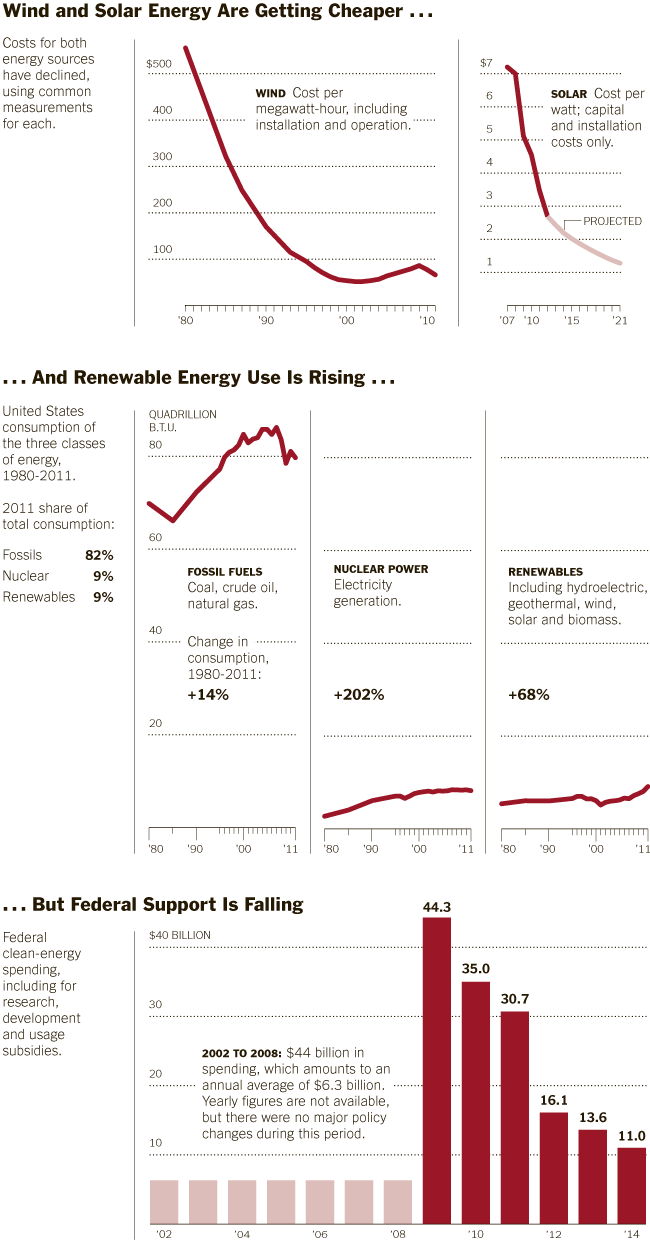Reasons to be optimistic regarding the global economy's response to global warming
 Sunday, July 22, 2012 at 1:20PM
Sunday, July 22, 2012 at 1:20PM 
US experiencing warmest year on record and 13 hottest years (going back to 1880) for the planet have all occurred since 1998.
David Leonhardt (whom I like a lot and always read) writing in NYT speaks of a non-punitive vector that seems to be emerging among the big players:
Behind the scenes [of the disappearing public debate on global warming], however, a somewhat different story is starting to emerge — one that offers reason for optimism to anyone worried about the planet. The world’s largest economies may now be in the process of creating a climate-change response that does not depend on the politically painful process of raising the price of dirty energy. The response is not guaranteed to work, given the scale of the problem. But the early successes have been notable.
Over the last several years, the governments of the United States, Europe and China have spent hundreds of billions of dollars on clean-energy research and deployment. And despite some high-profile flops, like ethanol and Solyndra, the investments seem to be succeeding more than they are failing.
The price of solar and wind power have both fallen sharply in the last few years. This country’s largest wind farm, sprawling across eastern Oregon, is scheduled to open next month. Already, the world uses vastly more alternative energy than experts predicted only a decade ago.
Even natural gas, a hotly debated topic among climate experts, helps make the point. Thanks in part to earlier government investments, energy companies have been able to extract much more natural gas than once seemed possible. The use of natural gas to generate electricity — far from perfectly clean but less carbon-intensive than coal use — has jumped 25 percent since 2008, while prices have fallen more than 80 percent. Natural gas now generates as much electricity as coal in the United States, which would have been unthinkable not long ago.
The successes make it possible at least to fathom a transition to clean energy that does not involve putting a price on carbon — either through a carbon tax or a cap-and-trade program that requires licenses for emissions. It was exactly such a program, supported by both Barack Obama and John McCain in the 2008 campaign, that died in Congress in 2010 and is now opposed by almost all Congressional Republicans and some coal-state and oil-state Democrats.
The real goal, according to one scientist, is the emergence of disruptive technologies that push the planet "down" the hydrocarbon chain (wood-->coal-->oil-->gas-->renewables & hydrogen).
The more we shift from threatening fines to promising record profits, the migration will occur as it should.
Fascinating for me to watch a dozen years after I ran that global warming-focused "economic security exercise" with Cantor Fitzgerald atop World Trade Center One.
NOTE: the falling USG support for renewable energy research is why the influx of China investment is so important.
 China,
China,  Europe,
Europe,  US,
US,  global warming,
global warming,  technology | in
technology | in  Citation Post |
Citation Post |  Email Article |
Email Article |  Permalink |
Permalink |  Print Article
Print Article 










Reader Comments